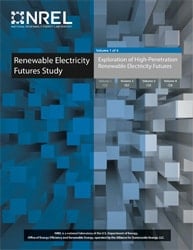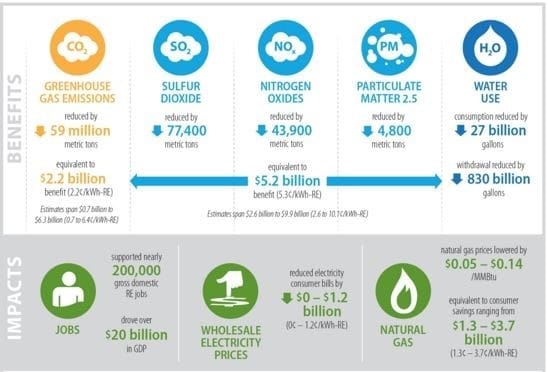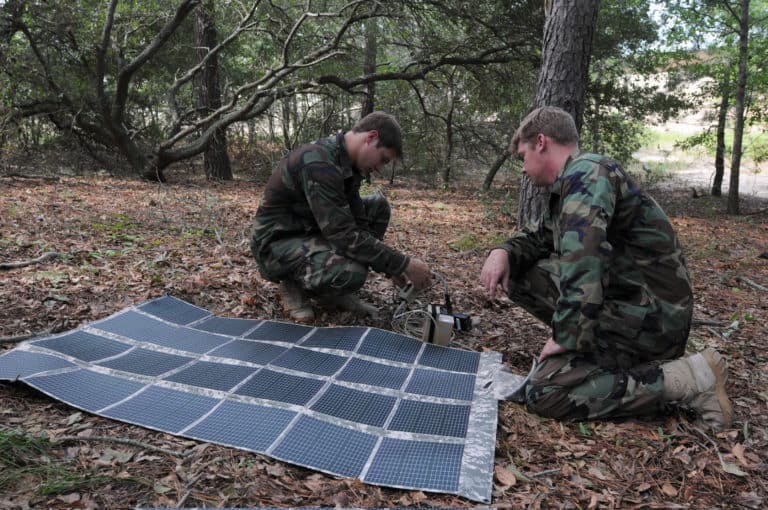Rick Perry said yesterday that the Trump administration is having “very classified” conversations about preempting state and local support for renewable energy under the pretense of national security.
Perry’s remarks came during an on-stage interview at the 2017 Bloomberg New Energy Finance Summit.
As Bloomberg reported:
During an on-stage interview, Perry was asked if the administration would interfere with state policies requiring utilities to get power from renewable sources. Such a move would potentially destroy efforts by California, New York and other states to fight climate change by encouraging the growth of clean power.
Perry didn’t rule it out, saying the reliability of the grid was a matter of national security.
“That’s a conversation that will occur over the next few years,” Perry said. “There may be issues that are so important that the federal government can intervene.”
And according to Time’s Justin Worland:
During a question and answer period, Perry also suggested that increased reliance on renewable energy sources like wind and solar might make the grid unreliable given they only work when the sun is shining and the wind is blowing, creating national security concerns. The Trump administration might try to preempt state and local governments that use policy to encourage clean energy to address those concerns, Perry said.
“There’s a discussion, some of it very classified that will be occurring as we go further,” Perry said. “The conversation needs to happen so the local governors and legislators, mayors and city council understand what’s at stake here in making sure that our energy security is substantial.”
Saqib Rahim of E&E News provided a slightly different quote from Perry:
“There’s a conversation, there’s a discussion, some of it obviously very classified, that will be occurring as we go forward, to make sure that we have the decisions made by Congress, in a lot of these cases, to protect the security interests of America,” he said at BNEF’s The Future of Energy Summit, “and that states and local entities do in fact get pre-empted with some of those decisions.”
Perry’s remarks re-sparked earlier concerns that the Trump administration could seek to preempt renewable energy standard policies that are now in place in 29 states, as well as renewable energy goals adopted by another 9 states. The growing number of local communities that have committed to transitioning to 100% renewable energy could also come under fire from the Trump administration.

Photo of Rick Perry by the U.S. Department of Energy
Renewable energy is reliable and makes America safer – just ask the Department of Energy
Rick Perry is also facing scrutiny for ordering a “study examining electricity markets and reliability” that was tasked to his Chief of Staff Brian McCormack, who previously played a central role in attacks against rooftop solar for the Edison Electric Institute. Also named to lead work on the study is political appointee Travis Fisher. Fisher previously worked for the Institute for Energy Research (IER) and American Energy Alliance (AEA), which have received ample funding from the Koch brothers and coal industry. IER and AEA have long sought to undermine renewable energy standards in states like North Carolina, a national leader in solar energy.

A report by NREL found the U.S. can rely on renewable energy to provide up to 80 percent of its electricity by 2050, using the clean energy technologies that exist today.
Christian Roselund of PV Magazine responded to Perry’s study order by pointing out that the National Renewable Energy Laboratory (NREL) – one the Department of Energy’s 17 National Laboratories – has already written studies that show we can rely on renewable energy to provide much more of our electricity than it does today. In fact, one 2012 NREL study found that we could get 80 percent of our electricity from renewable sources by 2050 using existing technologies. Other studies by states and grid operators confirm that renewable energy is reliable.
Another NREL study documented the significant health and environmental benefits generated by the state renewable energy standards that the Trump administration could try to preempt. In short, these policies make Americans safer by reducing harmful pollution emitted when we burn fossil fuels – especially coal – to produce electricity.

This infographic by NREL demonstrates how state renewable energy standards make Americans safer by protecting public health and the environment.
Other reports by clean energy experts have documented the economic security benefits of these state renewable energy standards, which have supported the growth of jobs in the booming solar and wind power industries.
Real world experience also shows that renewable energy is working just fine. Texas, the state where Rick Perry was governor, actually leads the nation in wind energy generation. In fact, nearly a quarter of the electricity generated in Texas during the first quarter of 2017 came from wind.
Ask the Department of Defense too
The Department of Defense does not appear to share the Trump administration’s concerns about renewable energy. In fact, the military has made significant investments in renewable energy in order to enhance national security – an investment that continues with Trump in the White House. The U.S. Navy just recently refuted misleading claims that a new wind farm could interfere with a radar system made by some Republican lawmakers in North Carolina who wrote a letter to the Trump administration.

DoD photo by Petty Officer 2nd Class Paul D. Williams, U.S. Navy.
Climate change is a real threat to energy and national security
In 2015, the Department of Energy released a report that documented the threat climate change poses to energy security – and by extension national security – in every region of the U.S. The Department of Defense has also documented the national security risks posed by climate change – risks James Mattis acknowledged during his confirmation as Trump’s Secretary of Defense.
Trump’s efforts to rollback limits on carbon dioxide pollution from power plants and his embrace of the so-called “clean coal” put the nation’s energy and national security at further risk from climate change. Preempting state and local support for renewables would only increase those risks.
Rick Perry could support renewable energy by working for a smart grid
Greentech Media reports that Perry made only “sparse” mention of renewable energy at the Bloomberg New Energy Finance Summit, but did say he wants to “help renewable energy make its way to the grid…”
Preempting local and state support for renewable energy would only ensure that less renewable energy makes its way to the grid. Perry could instead take positive steps to support integration of renewable energy by working to build a smart grid, the topic of a Department of Energy website. He could also support the energy storage revolution that is now underway, thanks in part to earlier investments by the Department of Energy.
Unfortunately, the Trump administration’s energy policy seems to more squarely aligned with fossil fuel and utility interests who seek to undermine state and local support for renewable energy.
The Trump team is full of opponents of state and local support for renewable energy
Travis Fisher is not the only political pick by the Trump administration that comes with a history of attacking state and local policies that have fueled the growth of renewable energy to benefit funders in the fossil fuel or utility industry.
Trump tapped Thomas Pyle, also of the Institute for Energy Research and American Energy Alliance, to run his Department of Energy transition team. IER and AEA have targeted state renewable energy standard policies with misleading attacks for years. During the 2016 election, Trump responded to an American Energy Alliance questionnaire with pledges to “review” key U.S. clean energy and climate change policies, including the Environmental Protection Agency’s Clean Power Plan and science-based endangerment finding for greenhouse gas emissions. Trump has already fulfilled part of that pledge by beginning the process of rolling back the Clean Power Plan.
Trump similarly chose climate denier Myron Ebell of the Competitive Enterprise Institute to lead his Environmental Protection Agency transition team. Like Fisher and Pyle, Ebell has attacked renewable energy standards in states like Ohio. Greentech Media recently took a rather revealing look look at the backgrounds of some other members of Trump’s energy beachhead team.
No uncertainty about state and local support for renewable energy
At this point, it remains unclear how exactly the Trump administration would use the pretense of reliability concerns to preempt state and local support for renewable energy. If it does seek to preempt state and local control, it will certainly face significant opposition from states and local communities – including those led by Republicans – that are already leading the way on renewable energy.
